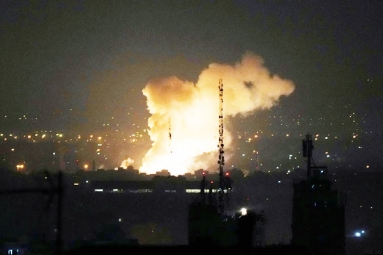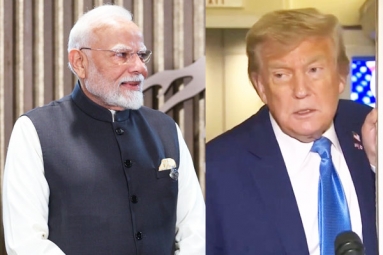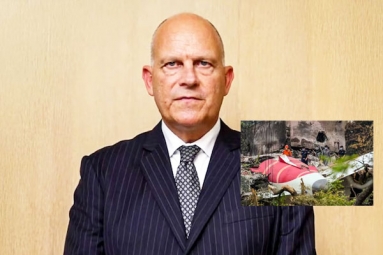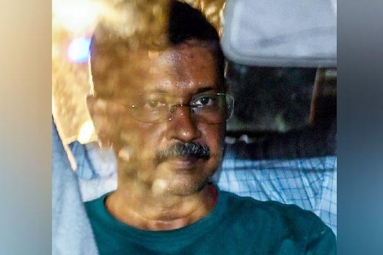
(Image source from: x.com/AamAadmiParty)
The Aam Aadmi Party (AAP) leader and Delhi Chief Minister Arvind Kejriwal has been granted bail in the alleged Delhi excise policy scam case, which is seen as a significant boost for the party ahead of the Haryana Assembly elections. The Supreme Court has granted Kejriwal bail on certain conditions, including a bail bond of Rs 10 lakh and two sureties. Kejriwal had been imprisoned for the last six months. The Delhi government had introduced a new liquor policy in November 2021 to remove the government from the alcohol sales business and allow only private liquor shops to operate in the city. However, the policy was scrapped nearly a year later, and the government reverted to the old liquor policy on September 1, 2022.
The text discusses allegations of irregularities in the implementation of a new excise policy. The Enforcement Directorate (ED) has registered a case to investigate money laundering claims. The ED alleges that the Aam Aadmi Party (AAP) collaborated with a "South Group" to fund the party's Goa election campaign, which the group was to recoup through its liquor businesses in the National Capital. Kejriwal, the Delhi Chief Minister, has been summoned multiple times by the ED, which he has skipped, calling them "illegal". The ED approached the court against Kejriwal for evading summons, leading to a court issuing a fresh summon in March. Kejriwal secured bail on two ED complaints but the Delhi High Court refused to grant him protection from coercive action. Ultimately, the ED arrested Kejriwal on money laundering charges under the Prevention of Money Laundering Act, 2022, and he has been in judicial custody in Tihar jail since April 1.
Senior AAP leaders Manish Sisodia, who was in charge of the excise department when the new policy was introduced, and Sanjay Singh were also imprisoned in this case. Both have since been released on bail. The AAP leader has received bail three times in the liquor policy case, and has even been released from jail once before.
In March, Kejriwal challenged his arrest by the ED in the Delhi High Court, but his petition was rejected the following month, leading him to approach the Supreme Court. During the hearing, the ED informed the Supreme Court that Kejriwal was "guilty" of money laundering. The Supreme Court questioned Kejriwal's absence from the central agency despite repeated summons to record statements. On May 10, the Supreme Court granted Kejriwal interim bail until June 1 to allow him to campaign in the Lok Sabha elections, stating that the 21-day period would not make a significant difference. The court directed Kejriwal to surrender on June 2 and noted that he does not have a criminal history and is not a threat to society. Kejriwal was released from jail that month but was denied interim bail on medical grounds by a Delhi court when his interim bail period ended on June 1.
The Delhi High Court initially granted bail to Kejriwal on June 20, but the Enforcement Directorate (ED) challenged this decision. The court then halted the bail order until it could hear the case. On June 26, the Central Bureau of Investigation (CBI) arrested Kejriwal in a corruption case related to the alleged excise policy "scam." Kejriwal withdrew his Supreme Court petition challenging the High Court's interim stay on the bail granted by the trial court. On July 12, the Supreme Court granted interim bail to Kejriwal in the ED case, but he remained in jail due to the CBI arrest. The High Court later upheld the CBI's decision to arrest the chief minister on August 5.
Kejriwal initially went to the lower court. Later, on August 12, he approached the Supreme Court against the decision made by the Delhi High Court. He filed two separate requests - one questioning the legality of his arrest by the CBI and the other requesting bail. The Supreme Court thoroughly examined the case before postponing its final ruling on September 5. The Delhi CM's lawyer, Senior Advocate Abhishek Manu Singhvi, stated that Kejriwal had already been granted bail on three previous occasions. According to the Indian Express, he argued that this was possibly the only case where a person was granted bail under the PMLA with stricter conditions but denied bail for the underlying offence.
The Additional Solicitor General (ASG) SV Raju, representing the CBI, said Kejriwal should have applied for bail at the trial court instead of the Delhi High Court. While both the High Court and Sessions Court can grant bail for non-bailable offences, the ASG argued that the High Court has repeatedly stated that the accused should first approach the lower court unless there are "exceptional" circumstances. The ASG claimed the only exceptional circumstance in Kejriwal's case was that he was the Chief Minister.
Today, the Supreme Court granted bail to Kejriwal in the corruption case filed by the CBI. In the judgement, Justice Bhuyan questioned the necessity and timing of the arrest by the central agency, stating that the CBI's arrest was only to "frustrate the bail" granted in the ED case. The AAP has celebrated the verdict as a triumph of truth. Kejriwal's release from Tihar jail is a significant event for the AAP as it gears up for elections in Delhi and Haryana. In response to the bail, the BJP has demanded Kejriwal's resignation as Delhi's chief minister. The BJP spokesperson asserted that the Supreme Court has exposed Kejriwal's blatant dishonesty, and he should promptly resign.





















